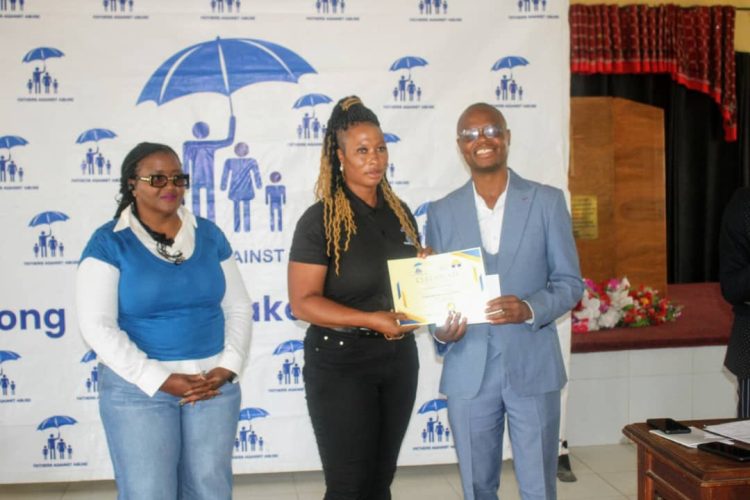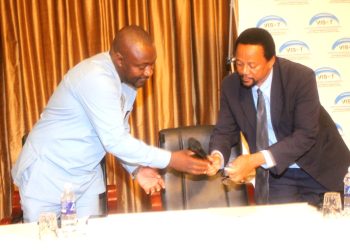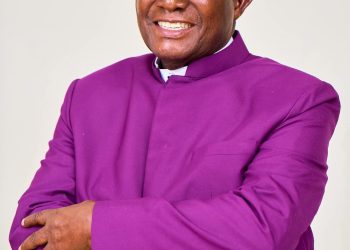Fathers Against Abuse on 8 August 2025 hosted a men’s mental health symposium in Epworth which was meant to raise awareness about men’s mental health and to alleviate Gender Based Violence and stigmatization of GBV victims in the community.
The symposium promoted dialogues which enlightened men about the importance of men engagement in programs of gender equality.
In a presentation, Zimbabwe Gender Commission (ZGC) representatives stressed that if men are included in all initiatives meant at addressing gender-based violence in the country, meaningful solutions will be generated without leaving any gap.
As ZGC, we are working tirelessly to make sure that we realise gender equality in the country. We have key departments which cover investigations of gender equality and GBV, the legal department which deals with legal issues and the research department which covers issues to do with research and policy formulation.
“Our call is that men and boys should be involved in gender equality and empowerment dialogues. Men engagement is such dialogues results in reduced cases of abuse, improved health outcomes and meaningful solutions to challenges.
“We are encouraging all stakeholders to intensify male inclusion and participation in all endeavors meant at dealing with gender issues. As ZGC among other drives we have chiefs Indaba through which we engage traditional leaders to address issues of gender-based violence in communities,” he said.
On this empowerment session, men were challenged to report all forms of harassment that might be happening to them as a way of challenging toxic societal cultures such as “men must not cry”.
Speaking on the sidelines of the event, Pastor Oscar Bere of House of Bezar International highlighted that the symposium helped them in getting counselling skills which they are going to use in their churches towards equipping their members with anti-gbv knowledge.
“The symposium was useful to us as Pastors. In many cases, some of us we are not good at providing marital counselling to our congregants for example but from today I am very sure that our approach to issues of GBV and mental health in the church is going to be different. We are going to offer meaningful solutions.
“As a church we are saying no to gender-based violence and sexual abuse. We host men’s conferences where we teach men on how to head families responsibly,” said Bere.
The session had also seen several individuals who were trained by Fathers Against Abuse to combat gender-based violence awarded certificates of completion in various disciplines which among others include
Matimba Anesu who was trained under the Anti-GBV task force described how the knowledge he acquired was going to impact the community saying “I will be helping men to understand that violence causes disunity in the family. I want to encourage all victims of GBV to use us as their resource personnel to seek information on how to address challenges in their homes. I also want to encourage all the victims to use referral pathways that are available to them,” he said.
Morgan also said “As a man I now know that as men we should not keep toxic and painful issues in our hearts. We should learn to speak out so that we avoid mental health problems. Men should not die because of patriarchal expectations,” he said.
Women who were part of the symposiums who were also trained with Fathers Against Abuse said their involvement in such initiatives help to have diversity of solutions to gender-based violence.
Spiwe Gocha from Epworth Ward 7 who were trained for problem management (Problem Management Plus) said “The most important thing that we were taught was to handle sensitive issues with wisdom. We were taught not to expose people’s secrets.
“Also, we were enlightened that men can also be victims to sexual abuse. This helps us as women who are also working with issues of gender-based violence to know that we should give same attention to both parties regardless of gender. Our involvement in these issues allows us to identify men who need help such as counselling and referral pathways,” she said.
The symposium was attended by local church leaders, Zimbabwe Gender Commission, youth organisations and community leaders among others.
In Zimbabwe, the 2015 Zimbabwe Demographic and Health Survey found that about 1 in 3 women aged 15-49 have experienced physical violence and about 1 in 4 women have experienced sexual violence since the age of 15.
























